Drug and Alcohol Rehab in Milton Keynes
This article will discuss drug and alcohol rehab in Milton Keynes.
Quick Links for help with addiction in Milton Keynes
- Why should I choose rehab care in Milton Keynes?
- What is a drug and alcohol intervention in Milton Keynes?
- Public vs Private Rehab in Milton Keynes
- How much will it cost to stay in rehab in Milton Keynes?
According to the Office for National Statistics, Milton Keynes has a population of 173,666 adults (16–65).
Of this population, 1,206 are opiates and crack users (OCUS), and an estimated 2,136 have an alcohol dependency.
In England, statistics gathered indicate that 3.2 million adults aged between 16–59 have taken a drug in the past year.
In Milton Keynes, cannabis is the most used substance. This reflects England’s overall drug trends, with 7.8% of adults having used cannabis.
The second most popular drug in England is cocaine, accounting for 2.6% of those with a substance dependency.
National Statistics for England show that 140,863 people had treatment for drug or alcohol dependency in the last year.
Opiates were the most treated substance, with 70,616 receiving treatments. This was followed by alcohol (23,963), cannabis (22,151), and finally cocaine (7,242). [1]
For more information, please follow this link.
For those suffering from drug and/or alcohol dependency and are based in Milton Keynes, this article will be a useful guide.
It will highlight what to expect from drug and alcohol rehab in Milton Keynes, what services are available, costs, and different treatment options.
Below, we provide some statistics about alcohol and drug use in Milton Keynes:
| Drug and Alcohol Statistics in Milton Keynes (2020) | Data |
| People who are opiates and crack users (OCUS) in Milton Keynes | 1,206 |
| Number who have an alcohol dependency in Milton Keynes | 2,136 |
| People in treatment for drug or alcohol dependency in England | 140,863 |
| People receiving treatments for opiates in England | 70,616 |
Get alcohol and drug rehab in Milton Keynes for a number of addictions including binge drinking, alcohol addiction, benzodiazepine addiction, Buprenorphine addiction, cannabis use disorder, crack cocaine addiction, ketamine addiction, opioid use disorder, heroin addiction, cocaine dependence or cocaine addiction, any physical dependence or codependency, substance use disorder, and behavioural addictions such as gambling addiction and eating disorders.
Please call our 24-Hour Helpline: 0800 326 5559
Common misconceptions about Addiction in Milton Keynes
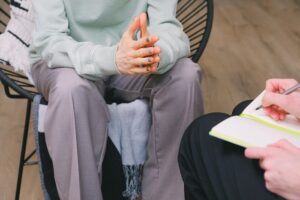
Addiction in the past has been misconstrued as a lack of discipline, but now addiction is understood to be a complex and chronic disease.
While the initial decision to take a substance or drink alcohol is within our control, the number of factors determines whether this becomes an addiction.
Recently, the CoA has stipulated that addiction is comparable to diabetes, cancer, and heart disease.
This is because “it’s caused by a combination of behavioural, environmental, and biological factors.”
At OK Rehab, we’ve chosen treatment providers who offer addiction programmes grounded in science. Each rehab centre in Milton Keynes has been approved by The Care Quality Commission and is dedicated to providing outstanding care.
With this being said, choosing a rehab centre can often be overwhelming. Our referral service has been simplified with this in mind so that we can help you choose the right drug & alcohol rehab in Milton Keynes.
Please call our 24-Hour Helpline: 0800 326 5559
How do I know if I am Addicted in Milton Keynes?

For those seeking drug and alcohol rehab in Milton Keynes, there might be some doubt as to whether treatment is necessary.
A question that might be asked is: how do I know if I am addicted?
If you are asking yourself this question, do not worry. There are some useful signs that substance dependency is emerging or has occurred.
Although, it should be noted that this can vary from person to person. It is always advised that you should seek the help of a medical professional in Milton Keynes.
Here are some useful indicators of addiction:
- No longer wanting to interact socially unless the substance is involved or engaging with hobbies or activities – this is known as ‘social and recreational sacrifices.’
- Engaging in secretive behaviours to conceal your use of the substance
- Financial problems due to spending money on the substance
- Needing more of the substance to gain or maintain the effects
- No longer caring about the psychological or psychical damage the substance is causing
- Negative changes in your behaviour and personality
Please call our 24-Hour Helpline: 0800 326 5559
Withdrawal symptoms are major signs of addiction
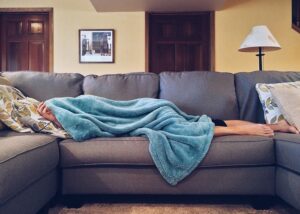
One of the most prominent signs that addiction has occurred is withdrawal.
This is a byproduct of detox in Milton Keynes – a period when the body expels harmful toxins/substances.
This occurs when a person has developed a substance dependency and stops using the substance – the result is some unpleasant symptoms in Milton Keynes.
This varies from drug to drug and from person to person, but universal symptoms of withdrawal include irritation, agitation, flu symptoms – nausea, vomiting, stomach issues – anxiety, and depression.
If you notice any of these symptoms when you are not taking the drug, they may be emerging due to substance dependency.
Withdrawal symptoms related to specific drugs will be discussed in further detail below.
When you are substance dependent, your cognitive abilities will likely become impaired.
This will negatively affect your personality, ability to think, perceptions, motor skills, and behaviour.
With regards to the latter, this might manifest itself in what experts refer to as ‘risk-taking’ behaviours.
Examples include the inability to control impulses – such as consuming a substance – no longer taking care of hygiene, not eating or sleeping, or engaging in criminal activities, such as stealing.
Some common changes in your personality might include restlessness, being more easily irritated, paranoid, anxious, or stressed.
Another common sign is that people around you will probably start to notice changes in your appearance, personality, and behaviours.
Your loved ones might start to make comments or express concern.
These are some of the most common signs of addiction.
However, if you are still unsure about whether you have a substance dependency, there are also useful tools that were developed by medical professionals.
Please call our 24-Hour Helpline: 0800 326 5559
The CAGE Questionnaire at a drug and alcohol rehab in Milton Keynes

A popular tool is a CAGE (Cutting down, Annoyance by criticism, Guilty feeling, and Eye-openers) questionnaire. It is considered by professionals to be reliable, and studies have found that it has a 93% success rate. [2]
It was originally developed for alcohol dependency, but a variation aimed at drugs is also available.
The questions for alcohol in Milton Keynes are:
- Have you ever felt you should cut down on your drinking?
- Have people annoyed you by criticising your drinking?
- Have you ever felt bad or guilty about your drinking?
- Have you ever had a drink first thing in the morning to steady your nerves or get rid of a hangover (eye-opener)?
The questions for drugs in Milton Keynes are:
- Have people annoyed you by criticising your drug use?
- Have you felt bad or guilty about your drug use?
- Have you ever used drugs first thing in the morning to steady your nerves or to get rid of a hangover (eye-opener)?
Each of these questions can be answered by saying yes or no. Although this might seem simplistic, each question is indicative of substance dependency.
To elucidate, the ‘C’ shows whether a person is using a substance frequently.
The ‘A’ is used to uncover whether the person is in denial. Someone with a dependency is more likely to hide their addiction.
The ‘G’ is aimed at uncovering feelings of guilt or shame – common emotions for those with an addiction.
Finally, ‘E’ seeks to uncover the extent of substance use and if it is used as a coping tool, for example.
Please call our 24-Hour Helpline: 0800 326 5559
Why should I choose rehab care in Milton Keynes?

For those ready to start the recovery process, the thought of entering rehab for around 30 days can seem daunting.
However, the reasons that make the idea of rehab seem overwhelming: a new environment, people, and opening up to a therapist, are what makes it so successful.
A change in scenery is known to be hugely beneficial for a variety of physical and mental illnesses, and the same goes for Substance Use Disorder (SUD).
One problem with outpatient care for addiction recovery is that after an appointment, the individual has to return home.
Whether the home environment in Milton Keynes is safe and loving or fraught with conflict, more often than not, there will be triggers present.
According to a recent study, around two-fifths (41.0%) of adults aged 16 to 59 thought that it would be very or fairly easy for them personally to obtain illegal drugs within 24 hours if they wanted them.
As such, the premature return home is often problematic for those in the early stages of recovery in Milton Keynes.
In contrast, those opting for rehab care will complete all their treatment on-site in Milton Keynes, within a safe and secure space.
This change in location is an incredible reset tool and means patients are more likely not only to get in recovery but to stay there too. Free of distractions and triggers, patients can wholeheartedly focus on therapy and their continued healing process.
This leads to another long-term benefit of rehab care. During your stay, you’ll undergo a range of talking therapy that is fully tailored to your situation and history.
Types of therapy available at a private rehab include Acceptance and Commitment Therapy, acupuncture, art therapy, cognitive behavioural therapy, dialectical behaviour therapy, drama therapy, Eye Movement Desensitization and Reprocessing, group psychotherapy, motivational therapy, Rational Emotive Behavior Therapy, brief intervention, contingency management, coping mechanisms work therapy, equine therapy, family therapy, group therapy, individual therapy, mindfulness, motivational interviewing, music therapy, and talking therapies.
While opening up to a professional may seem unnerving, addiction psychiatrists in rehab are non-judgemental and dedicated to your recovery.
The length of a 28–30 days stay allows ample time to build a rapport with your therapist in Milton Keynes and get to the root cause of your addiction. Moreover, all treatment programmes are fully bespoke, and therapy is targeted to promote healing in specific areas.
From the substance you’re addicted to, to any underlying mental health needs, choosing therapy will allow you to work on all elements of your well-being.
Please call our 24-Hour Helpline: 0800 326 5559
What is a drug and alcohol intervention in Milton Keynes?

Image above: A kitchen at a drug and alcohol rehab in Milton Keynes
If you are suffering from a substance dependency, your loved ones will likely be concerned.
As a result, they might seek to convince you to seek medical help. One way that they might do this is to organise an intervention.
Intervention is a gathering of concerned others where they will express their worries and try to convince their loved ones that they have a problem.
Interventions can be emotionally straining. Therefore, medical experts have provided some useful considerations to bear in mind when you are planning to stage an intervention.
These include:
- Be careful not to include too many people – only the person’s closest family and friends
- Decide what to say before the intervention – perhaps write it in a letter
- Focus on remaining calm
- Practice communicating in a positive and encouraging manner
- Seek the help of a professional interventionist
Please call our 24-Hour Helpline: 0800 326 5559
The importance of communication in intervention in Milton Keynes

Image above: Woman making a call in Milton Keynes
As is evident in these points, communication is one of the most important factors of an intervention.
Communication should be positive and aimed at encouraging the person to address their addiction.
Experts recommend giving communication some forethought – either by practising what to say or by writing it in a letter.
It is also recommended to focus on some key elements, such as persuasion, accountability, the impact of substance dependency, and changes in personality and behaviour.
As interventions can be intense and difficult, you should consider employing the help of an interventionist.
Interventionists are trained professionals that will be able to assist in a variety of ways.
They can help develop and improve communication skills, provide understanding regarding how the dependency occurred, act as a mediator, and help organise and implement a successful intervention.
Please call our 24-Hour Helpline: 0800 326 5559
The CRAFT Method of Intervention
If you are interested in conducting an intervention, it might be worth looking into the Community Reinforcement and Family Training (CRAFT) method. [3]
This method is specifically aimed at families that are struggling to convince their loved ones to seek help.
It focuses on teaching families the tools needed to help their loved ones – in particular, through positive communication and behaviour reinforcement.
It has several objectives, such as:
- Teaching families how to recognise potential triggers and negative behaviours
- How to communicate in a positive manner
- How to help engender positive behaviours through positive reinforcement
- Helping families understand how and why addiction occurs
- How to be there for a loved one as they enter and go through treatment
Please call our 24-Hour Helpline: 0800 326 5559
Public vs Private Rehab in Milton Keynes
For those suffering from drug and alcohol rehab in Milton Keynes, there are many treatment options available.
Referrals can be done either through a medical professional or by yourself. [4]
Services ARC provides in Milton Keynes include:
- Harm reduction
- Needle exchange
- Health checks
- Help to access treatment programs
- Psychological interventions
- Pharmacological treatments
For more information about ARC, please follow this link.
Please call our 24-Hour Helpline: 0800 326 5559
How much will it cost to stay in rehab in Milton Keynes?

There are also many private treatment facilities located in Milton Keynes. However, these are usually quite expensive.
On average, drug and alcohol rehab in Milton Keynes costs between £10,000–£14,000 per month.
This depends, however, on the type of treatment – whether the treatment is residential or not.
For example, one local treatment service in Milton Keynes is Home Detox UK. Home Detox UK are detox specialists that provide medical assistance and guidance for people to detox at home.
The starting price for Home Detox UK’s treatment is £995. This is a significantly cheaper option than private, residential treatment.
Some of these treatment programs might be covered by health insurance – either personally or through an employer.
This will depend upon the insurance provider and the package you have.
However, many UK-based health insurance providers cover the cost of rehab, such as BUPA, AXA, Aviva, and WPA.
Alternatively, if your substance dependency is severe, it might be possible to receive free treatment through the NHS.
This is reserved for the most extreme cases, and access to NHS treatment is not simple.
It requires you to have a referral from a health professional – a GP, social worker, or key worker, for example – and to apply for funding through Milton Keynes’ council.
If you are interested in accessing treatment through the NHS, it is advised that you speak to your local GP; they will be able to assess your needs and recommend the best treatment option.
Please call our 24-Hour Helpline: 0800 326 5559
Inpatient vs Outpatient Treatment in Milton Keynes
Most drug and alcohol rehab in Milton Keynes will be either inpatient or outpatient.
Inpatient is also known as residential treatment. Here, you will be expected to stay overnight at the facility for the duration of your treatment.
Outpatient treatment, however, does not require an overnight stay. Instead, it is fitted around your prior engagements – work, childcare, for example.
Inpatient is often better suited if you need 24/7 medical assistance. Commonly, this is a better option if you are entering rehab for heroin or alcohol dependency.
Treatment for other substances might be better suited to an outpatient program.
Your GP will be able to advise you regarding this.
Both inpatient and outpatient treatment offer similar programs – detox, therapy, and aftercare.
Some benefits of inpatient treatment include on-hand medical assistance and a safe and secure environment.
Some benefits of outpatient treatment include flexibility and cost-efficiency.
The main criticism of outpatient treatment is that you will still be living in a potentially counterintuitive environment.
In other words, you might still be surrounded by potential triggers, such as relationships, social settings, or even the substance itself. [5]
Please call our 24-Hour Helpline: 0800 326 5559
How long does rehab last in Milton Keynes?
The length of drug and alcohol rehab in Milton Keynes will vary dependent on several factors, such as:
- The severity of substance dependency
- The substance being treated
- The withdrawal processes
- Recommended therapy
- If there are any other medical considerations, such as mental health like depression, post traumatic stress disorder (PTSD), bipolar disorder, borderline personality disorder, obsessive compulsive disorder (OCD) or schizophrenia or anxiety or psychical illnesses
- If the treatment is residential or outpatient
According to recent studies, however, most treatment programs take between 30–90 days.
Outpatient treatment can last a lot longer, however, averaging between six months to one year.
The average detox is between five-to-seven days, but ongoing therapy and support can add to the duration of rehab.
The duration of rehab will depend upon your personal needs and will be determined by medical professionals.
Stages of alcohol detox
Alcohol dependence can be confirmed fast and efficiently using the Alcohol Use Disorders Identification Test, DSM-5 or CAGE questionnaire.
Dependent drinkers will have built up a strong tolerance to alcohol, and experience unpleasant withdrawal symptoms (alcohol withdrawal symptoms) or alcohol withdrawal syndrome when they stop drinking.
To ensure that the risk of seizures is curtailed our medical team prescribe patients with Chlordiazepoxide, brand name Librium, as they undergo detox.
A medically-assisted detox (alcohol detox) is needed in order to try to prevent the effects of alcohol, including encephalopathy (Wernicke encephalopathy) and delirium tremens.
Please call our 24-Hour Helpline: 0800 326 5559
Admission and entering rehab in Milton Keynes

If you are interested in drug and alcohol rehab in Milton Keynes, it is recommended to seek a referral.
This can be either a self-referral or a referral through a health professional.
All people entering rehab are subject to a pre-admission interview.
This is nothing to worry about and just a formality aimed at developing the best treatment plan for you.
Questions you might be asked include:
- What substance do you want to enter rehab for?
- How long have you been using the substance?
- What do you hope to get out of rehab?
Following this, you will agree on a start and will be advised what to bring for your stay.
When you enter rehab, you will undergo a psychological and physical examination.
This will help uncover any mental or physical issues that might need to be addressed.
This will help the medical professionals assist you in your treatment, such as the potential medication you will require. [6]
Please call our 24-Hour Helpline: 0800 326 5559
Rehab for Cannabis, Cocaine, and Heroin in Milton Keynes
Following the medical assessment, you will then enter the detox phase of rehab.
This process will vary depending upon the substance.
- Rehab for Cannabis in Milton Keynes: Cannabis, for example, has a relatively easy detox process. Withdrawal from cannabis is still unpleasant, but you will not need 24/7 medical assistance and/or medication. Usually, withdrawal symptoms will occur several after the final dose and will subside after several days. Withdrawal symptoms from cannabis include anxiety, stress, restlessness, and irritability. However, it is worth mentioning that cannabis can stay in your system for several months.
- Rehab for Cocaine in Milton Keynes: Cocaine withdrawal is more psychological than physical. This means that withdrawal symptoms tend to be cognitive. For example, common cocaine withdrawal symptoms include anxiety, paranoia, irritability, stress, and restlessness. Some studies have found that cocaine withdrawal can occur half an hour after the final dose but usually only lasts for several days.
- Rehab for Heroin in Milton Keynes: Unlike cocaine, heroin withdrawal is both psychological and physical. Medical experts consider it to be one of the most difficult detoxes. This is due to heroin being highly addictive. In addition, heroin withdrawal can be life-threatening, with severe symptoms including poor respiration, dehydration, and hypertension. Due to the severity of heroin withdrawal, you might be prescribed medication such as Methadone, Suboxone, or Buprenorphine. Less severe symptoms include restlessness, fatigue, and stomach issues – vomiting, nausea, and diarrhoea. Symptoms usually reduce after 24 hours but can last for several days. [7] You might also need advise on other effects of heroin such as hepatitis.
Please call our 24-Hour Helpline: 0800 326 5559
Rehab for Alcoholism in Milton Keynes
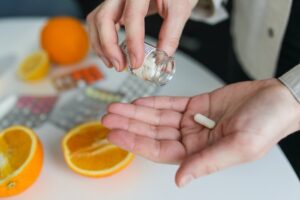
Alcohol withdrawal – also known as Alcohol Withdrawal Syndrome (AWS) – is also serious and can be life-threatening.
Residential treatment is advised if you are detoxing from alcohol. [8]
AWS symptoms range from mild to severe. Mild symptoms are like flu – nausea, headaches, fatigue, vomiting, and diarrhoea.
Severe symptoms consist of seizures, poor and fast respiration, heart complications, and high blood pressure.
AWS symptoms are also psychological – anxiety, depression, stress, and irritability, for example.
Studies have found that withdrawal from alcohol can occur several hours after the final consumption and usually last between five-to-seven days.
Commonly, you will be prescribed medication to help with AWS.
A popular medication used for anxiety and stress associated with AWS is Librium – a sedative.
Librium helps stabilise and regulate off-balance neurotransmitters that are a result of AWS.
Librium is administered in 5, 10, 20, and 25 mg doses via tablet – the dose given will depend upon your individual needs.
Librium is popular due to it being less addictive than other sedatives.
There are, however, some unpleasant side-effects of Librium, such as drowsiness and stomach issues – nausea and constipation, for example. [9]
Please call our 24-Hour Helpline: 0800 326 5559
What different types of therapy will I receive during rehab in Milton Keynes?
Whilst you are going through detox, afterwards, you will receive therapy.
Drug and alcohol rehab in Milton Keynes offers a variety of different therapies, which will be discussed below.
The most common is Cognitive Behavioural Therapy (CBT). CBT, as the name suggests, focuses on the interaction between cognition and behaviour.
In other words, it is theorised that thoughts influence action. Therefore, negative thoughts might lead to equally negative behaviours.
With regard to addiction, studies have found that the act of using a substance correlates with negative thought processes.
Experts use CBT to help you change your negative thoughts into positive ones. This, in turn, should help minimise the need to use a substance. [10]
Another popular therapy is Motivational Interviewing (MI). MI is a one-to-one therapy that seeks to reshape your motivations – to motivate you to continue to seek help and maintain sobriety, for example.
This is done by interviewing you over several sessions and getting you to set your own goals.
Holistic therapies are also common in rehab. These are less focused on analysing past trauma or potential triggers.
Instead, they focus on well-being through holistic activities, such as painting, poetry, music, yoga, and meditation.
Therapies in rehab are not just one-to-one, however. Many rehabs will employ communal therapies, such as group, family, or co-dependency therapy.
Group therapy, for example, might involve five or more people going through treatment.
Supervised by a medical professional, you will get to share your experiences and struggles and listen to others’ stories.
Such therapies are particularly useful for overcoming feelings of isolation and/or encouraging accountability.
Please call our 24-Hour Helpline: 0800 326 5559
We personalise our referrals
When it comes to treating SUD, there’s no “one size fits all” policy, and generalised treatment often does more harm than good.
Rather than picking a rehab centre at random, our team at OK Rehab will first build a portfolio of your needs and preferences.
We work closely with our clients and their loved ones through every stage of the referral process. This begins with a free phone consultation, chosen at a time that best suits your schedule or with the urgency that some situations require.
During this call, we’ll first perform a short health assessment in order to help build a treatment programme.
We’ll ask some simple questions about your substance use, current mental health, and if there are any predispositions to be aware of.
Secondly, we’ll make a note of any preferences you may have for an ideal drug & alcohol rehab in Milton Keynes.
This often includes budgetary requirements, and we’ll make sure to offer suitable payment schemes and a centre within your price range. Additionally, we take your location preferences very seriously, and if there are any treatments you wish to try.
Please call our 24-Hour Helpline: 0800 326 5559
Relapse Prevention and Aftercare in Milton Keynes
The final stages of your rehab journey will be relapse prevention and aftercare.
The former, simply put, is aimed at preventing you from going back to old habits when leaving rehab.
Working alongside an expert, you will develop a plan for how to deal with potential triggers, environments, relationships, and social settings.
A big part of this will be making sure that you continue to get the support that you need – for example, continued therapy and counselling.
This is referred to as aftercare, and all rehabs in Milton Keynes offer this.
Aftercare might include continued one-to-one or group therapy – perhaps Alcoholics Anonymous Milton Keynes (AA)or Narcotics Anonymous (NA). [11]
Both AA and NA have facilities in Milton Keynes that offer group support and a 12-step program that includes giving yourself over to a higher power.
There are also SMART Recovery services in Milton Keynes. SMART stands for Self-Management And Recovery Training.
SMART can offer many support services, such as CBT.
Please call our 24-Hour Helpline: 0800 326 5559
Our guarantee of post-rehab support
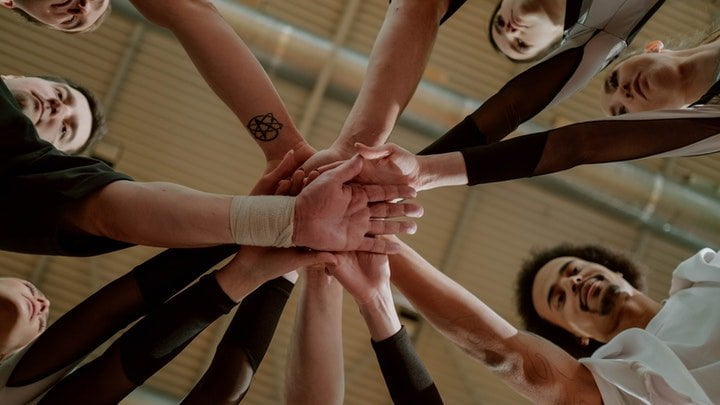
Of course, the end goal of rehabilitation is to maintain sobriety in the outside world. Though you’ll have the tools needed for a comfortable return to normality, that’s not to say it won’t be challenging.
In order to ease the transition and ensure ongoing support, OK Rehab offers a 12-month aftercare programme- at no additional cost. You’ll be guaranteed regular check-ins from a member of the team and access to local support groups.
This gives those in recovery the chance to build a support network of people who aren’t family members.
However, that’s not to say family and loved ones aren’t important. At OK Rehab, we’ve witnessed how important maintaining relationships is in sustaining sobriety.
As such, we’ll include those dear to you in your aftercare plan. This ensures that they have access to local support services, including therapy and groups dedicated to those whose families are in recovery.
Please call our 24-Hour Helpline: 0800 326 5559
Alternative Charities & Organisations
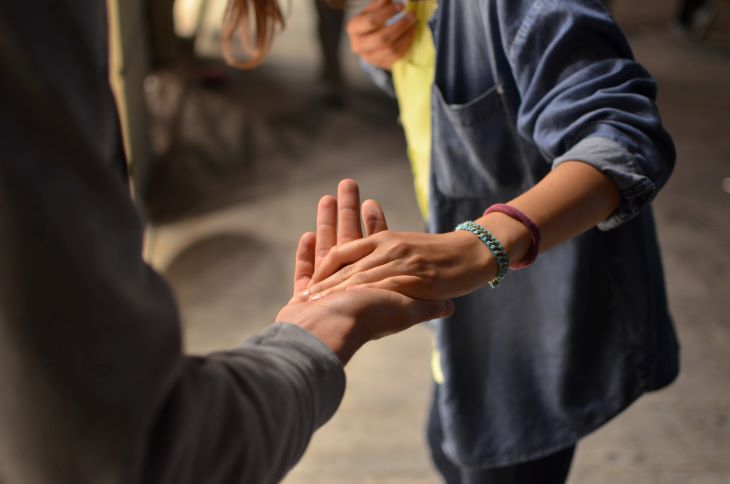
Below is a list of alternative services to access near Milton Keynes:
1. Path 2 Recovery
Address: 67 High St N, Dunstable LU6 1JF
Telephone: 03333 324 019
Website: https://changeyourtomorrow.co.uk/#areas/elft/pages/Home
2. Northampton Substance to Solution
Address: Spring House, 39 Billing Road, Northampton, NN1 5BA
Telephone: 01622 221 676
3. Oxfordshire Roads to Recovery – Banbury Hub
Address: Part Second Floor, Banbury Health Centre, 58 Bridge Street, Banbury OX16 5QD
Telephone: 01295 225 544
Website: https://www.turning-point.co.uk/find-a-service.html#/
12-Step programmes such as Alcoholics Anonymous (AA), Narcotics Anonymous (NA) or Cocaine Anonymous can be a great way to meet other people with similar goals. You and your friends and family members may also benefit from Al-Anon meetings.
For mental health support, reach out to Mind, Papyrus, Rethink Mental Illness Young Minds and Samaritans.
Other organisations which can offer guidance on your addiction for free include NHS Foundation Trust, Turning Point, We Are With You, National Association for Children of Alcoholics, Change Grow Live, Al-Anon and Alateen.
Rehabs and organisations are advised by the American Society of Addiction Medicine and the National Institute for Health and Care Excellence so you are in good hands with person-centered care.
You may also be offered sober living houses as part of your aftercare after you leave rehab in order to help you maintain your sobriety and help with relapse prevention.
Contact Us Today

For more information on detox and rehab options in Milton Keynes, contact Rehab Recovery today on 0800 088 66 86.
When you contact us, we’ll outline a variety of treatment options that are available to you in Milton Keynes. This includes both private and statutory addiction treatments.
All rehabs we work with are regulated by the Care Quality Commission (England and Wales) or the Care Inspectorate (Scotland).
We also offer our drug and alcohol rehab services across various locations in Buckinghamshire, including Bletchley, Wolverton, Newport Pagnell, Stony Stratford, Bedford, Milton Keynes, Aylesbury, High Wycombe, Beaconsfield, Amersham, Ackhampstead, Addingrove, Adstock, Akeley, Beamond End, Beanhill, Milton Keynes, Bedgrove, Aylesbury Vale, Bellingdon, Chiltern District, Bennett End, Dadford, Stowe, Aylesbury Vale, Dagnall, Egypt, South Bucks District, Fleet Marston, Flowers Bottom, Ellesborough, Gayhurst, George Green, Haddenham, Halton, Ibstone, Ickford, Lathbury, Latimer and Buckingham.
At Rehab Recovery, we offer free advice from a team of non-judgemental professionals, many of whom are in recovery and understand how hard it can be to change your relationship with addiction.
For more information about rehab in Milton Keynes, simply reach out to our 24/7, confidential hotline on 0800 088 66 86.
References
[1] Drug misuse in England and Wales: year ending March 2020: https://www.ons.gov.uk/peoplepopulationandcommunity/crimeandjustice/articles/drugmisuseinenglandandwales/yearendingmarch2020
[2] Ewing, John A. “Detecting alcoholism: the CAGE questionnaire.” Jama 252, no. 14 (1984): 1905-1907.
[3] CRAFT – Community Reinforcement and Family Training: http://www.wales.nhs.uk/document/229198
[4] NHS: ARC Milton Keynes: https://www.cnwl.nhs.uk/services/mental-health-services/addictions-and-substance-misuse/arc-milton-keynes
[5] Cole, Steven G., Wayne E. Lehman, Elizabeth A. Cole, and Alvin Jones. “Inpatient vs outpatient treatment of alcohol and drug abusers.” The American Journal of Drug and Alcohol Abuse 8, no. 3 (1981): 329-345.
[6] NHS: ARC Milton Keynes https://www.cnwl.nhs.uk/services/mental-health-services/addictions-and-substance-misuse/arc-milton-keynes
[7] Chiang, William K., and Lewis R. Goldfrank. “Substance withdrawal.” Emergency medicine clinics of North America 8, no. 3 (1990): 613-631.
[8] Identification and management of Alcohol Withdrawal Symptoms: https://www.ncbi.nlm.nih.gov/pmc/articles/PMC4978420/
[9] Ibid.
[10] Cornelius, Jack R., Antoine Douaihy, Oscar G. Bukstein, Dennis C. Daley, Scott D. Wood, Thomas M. Kelly, and Ihsan M. Salloum. “Evaluation of cognitive behavioural therapy/motivational enhancement therapy (CBT/MET) in a treatment trial of comorbid MDD/AUD adolescents.” Addictive behaviours 36, no. 8 (2011): 843-848.
[11] Alcoholics Anonymous: Great Britain and English-speaking Continental Europe: Milton Keynes Intergroup https://www.alcoholics-anonymous.org.uk/members/regional-&-local-websites/eastern-region/Milton-Keynes-Intergroup/Meeting





